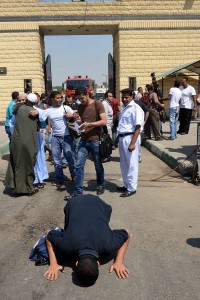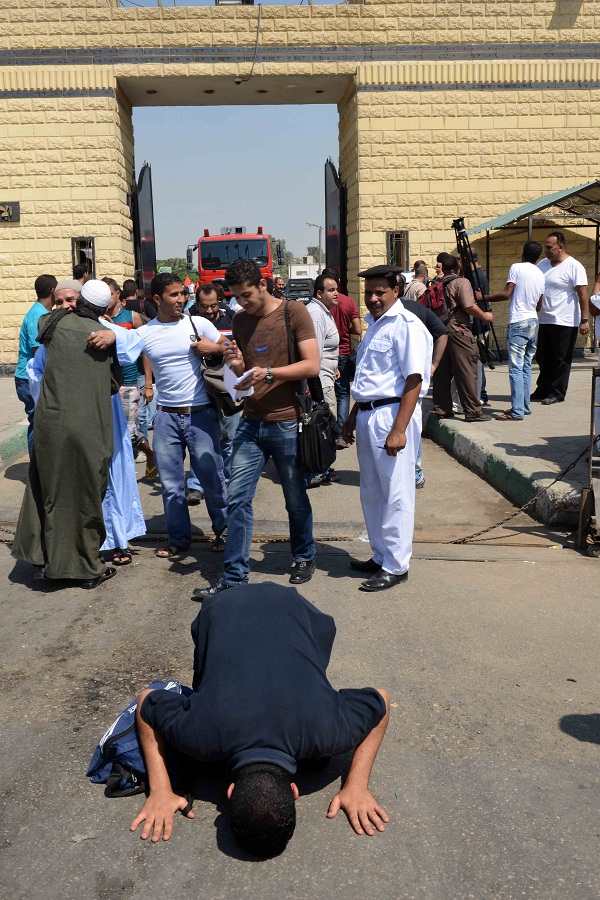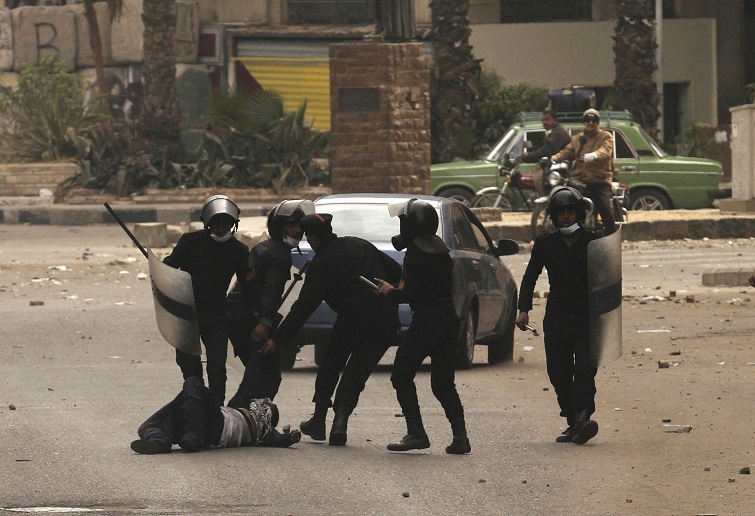
(File photo by Mohamed Omar)
Prosecutor General Abdel-Meguid Mahmoud on Monday issued a list of pardoned detainees who were convicted during events surrounding the revolution.
The list was released in response to a law issued by Mohamed Morsy on 8 October, granting pardons to all those detained and convicted from 25 January 2011 until 30 June 2012 for crimes “in support of the revolution” according to state-owned MENA.
Adel Said, spokesman for the prosecutor general, said, “this decision was made based on the previous decision of President Morsy granting amnesty for some crimes committed in support of the 25 January Revolution and the realisation of it’s goals,” reported MENA.
The prosecutor general ruled out granting amnesty to those who participated in acts of vandalism, theft, and destruction of state property.
Morsy issued the law at the beginning of October, and law dictates that the public and military prosecutors publish the names of those pardoned within a month, in state run Waqa’e Masreya newspaper. The deadline for doing so was this Thursday.
Legal advisor to the president Gad Allah confirmed to Daily News Egypt that the law does not distinguish between civilians and military citizens.
Allah added that the law also allows for people who feel they were wrongfully left off the list to file appeals to the prosecutor, or military prosecutors, within a month of the release of the list.
Activist groups welcomed Morsy’s law, but questioned how the general prosecutor differentiated between those detained for “supporting the revolution” and those convicted of offences that fall outside the guidelines for a presidential pardon, citing people who supported the revolution that were not included.
“The law is just empty words,” said Malek Adly, an activist with the Egyptian Centre for Economic and Social Rights. “Under the law, many revolutionaries such as Ahmed Douma aren’t included.”
“We rejected Morsy’s amnesty immediately after its release,” wrote activist Douma on Facebook. “We will not accept anything other than acquittals and the conviction of members of authority, both the criminals and killers.”
Adly said that the law provides too many loopholes that allow the government to continue to detain certain activists, and claim they were being held for crimes not related to the revolution.
Appeals will be reviewed by a committee headed by the head of the Court of Cassation and judges from the Cairo Appeals Court, and the Supreme Court of Military Appeals.
Morsy’s law followed his 6 October speech in Cairo Stadium, when he promised Egyptians that he would release more revolutionary prisoners.




